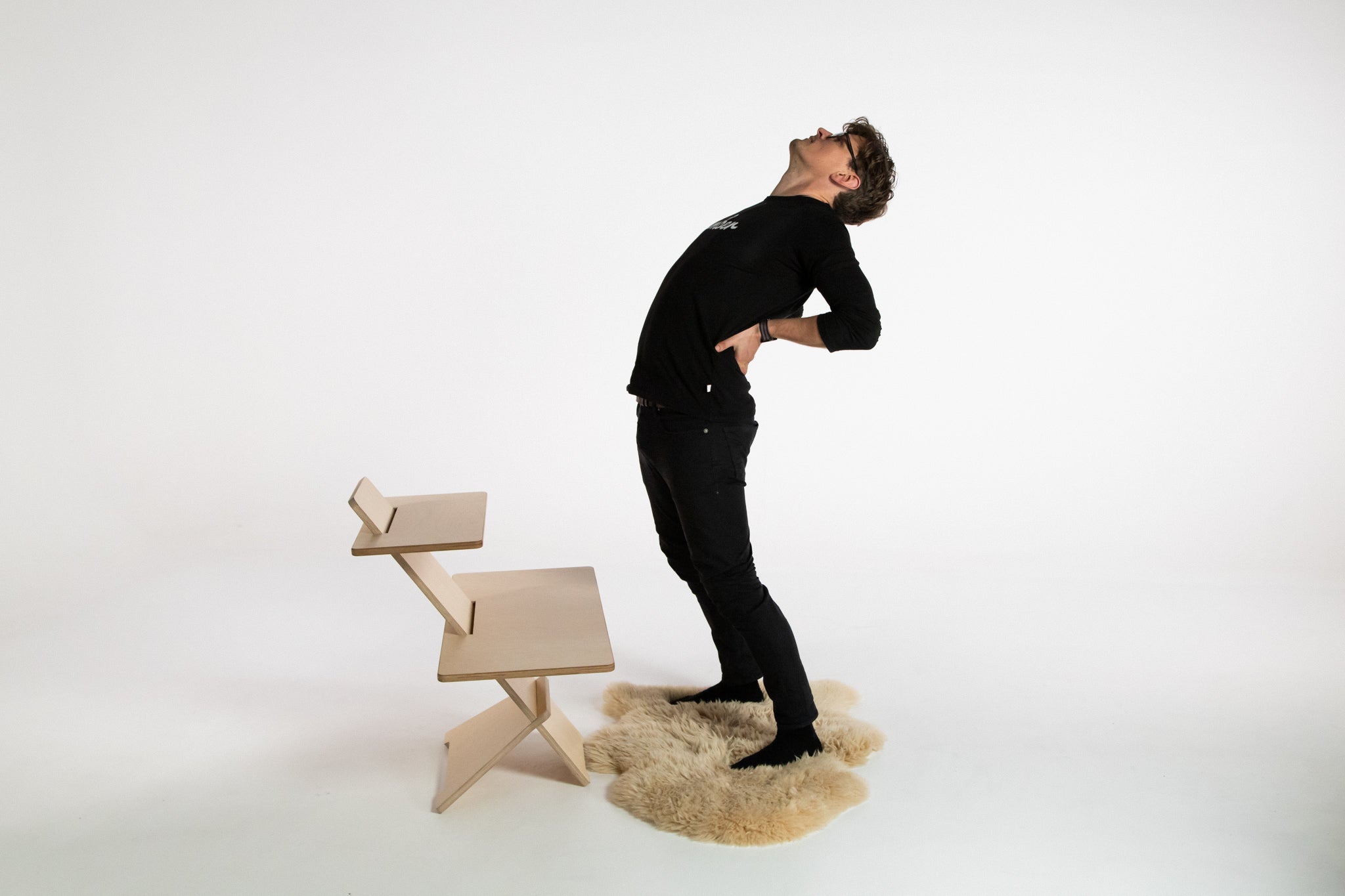Some call back extensions the silver bullet to back pain. Are they crazy or is there some merit to this claim?
TLDR: People who spend little or no time extending their back experience more back pain. Back extensions are a really effective and safe way to prevent low back pain. Plus, back extensions are the most common treatment exercise for low back pain. So, yes back extension is a very important movement and one of the best tools we have to prevent and treat low back pain. But is it a silver bullet? Almost, but no, although back extension is hugely important to our back health and an incredible preventative movement, it is not all powerful or the fix for all things. So maybe a bronze bullet?
Wait, what is back extension?
Back extension is when you arch your lower back and stretch it backwards. This can be done lying down or standing and with varying levels of pressure, from just holding in an extended position for minutes, standing, running, repeating an extension stretch multiple times, to using external pressure to help stretch it to the end of its range.
Why all the hype with extension?
Extension has been hyped because research has shown it to be an indicator of back pain reduction, a highly successful prevention exercise for back pain and it is also the treatment for the most common back pain.
From some interesting research we know that people who don't extended much during their day (and spend a lot of time flexed forward) are much more likely to experience low back pain.
Back extensions as an exercise have been shown to reduce the risk of getting back pain when integrated into daily life.
One study looking at military recruits found significantly fewer people in the extension group versus those in the control group reported back problems during the year of research (33% versus 51%). Significantly fewer people in the extension group versus those in the control group consulted the doctor too (9% versus 25%).
Another study followed a hospital floor of care workers found that back pain reduced dramatically with back extensions. Nobody in the extensions group needed a medical consultation or were absent from work in the year that they were studied. Compared to 7% of the control group needing to take time off work due to back pain.
Extension is also the most common treatment for the most common type of low back pain, being appropriate in ~60% of people who get treatment for low back and neck pain.
Is there any risk to doing extensions?
Extending our spine during the day is very beneficial to do as a preventative exercise. This should be a pain free movement for you and if it brings on pain, stop and book a session with your local physical therapist.
Using extension as a treatment tool should be done with care and advice from your local favourite medical professional. Or take a look at the 'Treat your own back' book by Robert Mckenzie which teaches you how to assess this on your own.
How do I do a standing extension?

After sitting, bending forwards, or lifting something;
Repeat 1-10x, and multiple times throughout the day.
Let me know how you get on with this in the comments.
A bronze bullet?
All together, extension is a hugely important movement for our low back health. Maintaining our ability to extend fully and balancing the amount of forward bending we do each day with some backwards bending is well proven to be preventative when it comes to low back pain, it even is a key treatment exercise.
But back pain occurs for many reasons and although extending our back is the most powerful tool we have, it is not all powerful. There are some back injuries we cannot prevent (like accidents and falls) and for some types of back pain other forms of treatment are needed. This is why back extensions are not a silver bullet, but they might be a bronze bullet, if that's a thing!
What has been your experience with back extension?
- Bart





Leave a comment
This site is protected by hCaptcha and the hCaptcha Privacy Policy and Terms of Service apply.